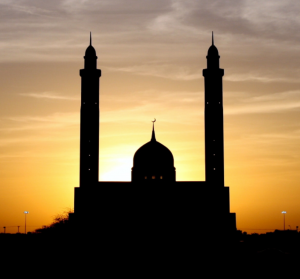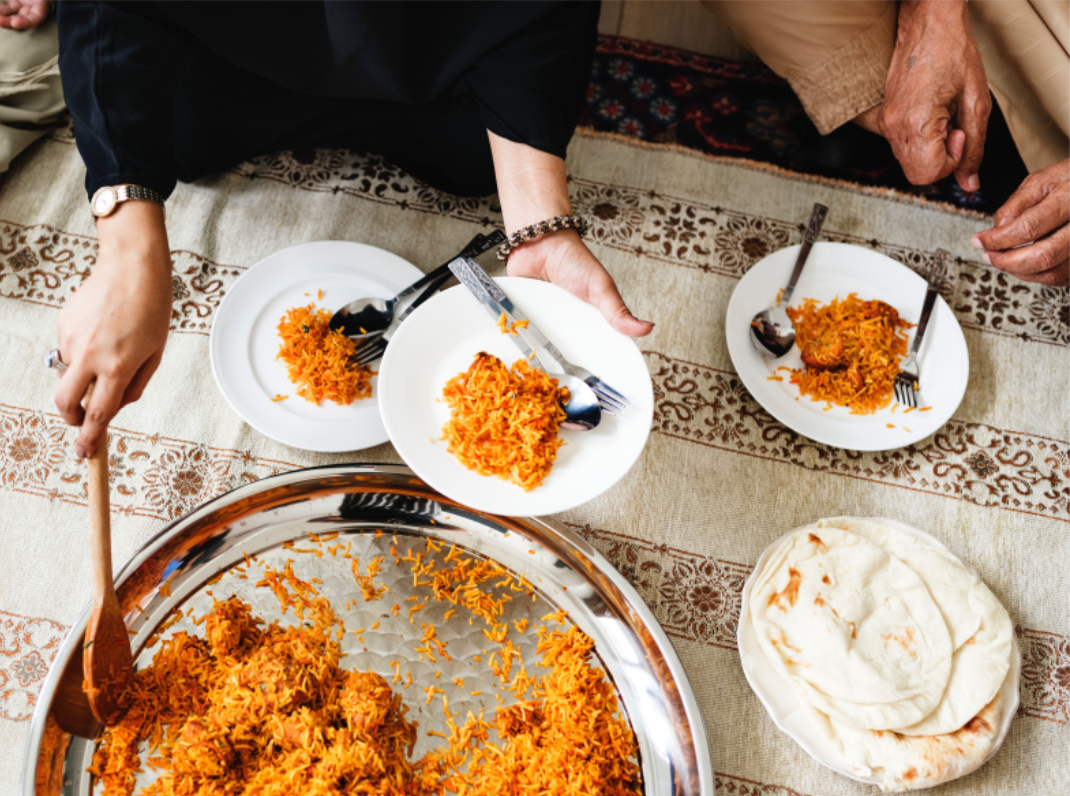Looking after someone during Ramadan?
If you are a Muslim carer, and will be participating in Ramadan, this page has some guidance for you as a carer, as well as some updates related to COVID>
What is Ramadan?
Ramadan is a Muslim celebration of when Muhammed received the Quran (also written Koran or Qur’an). During this time, Muslims focus on prayer, charitable acts and purification.
It’s a period of fasting during daylight hours, observed by healthy adults, and also includes prayer and family gatherings. This year will have to be different again, because of COVID-19 and the need for social distancing. The Muslim Council of Britain have issued some new guidance for this year.
The COVID vaccination and fasting
Some people have enquired about whether they can have the vaccination while they are fasting. The British Islamic Medical Association says that receiving the vaccination doesn’t invalidate the fast and it encourages individuals not to delay their vaccination on account of Ramadan.
This NHS video, below is from last year, but still applies. Local Muslim GP, Dr Azma Ali, explains the potential impact and talks through some different approaches that could be tried.
Most young people will be back at school, but there is no ‘exam season’ this year, so they are potentially more likely to fast this year, and this of course includes young carers. But please remember fasting is only for young people past puberty who have full understanding – and if circumstances this year are difficult, there are alternatives. Young carers should take care, and not over do it; they should try and enjoy other activities and take plenty of rest, especially if they have a significant caring role.
Observing Ramadan
Are there any exceptions?
Yes, there are some circumstances where people do not need to fast during Ramadan, including if the person is: ill, pregnant or breastfeeding, or menstruating.
If you can’t do Ramadan….
People who miss days due to these reasons can ‘make up’ the days later. If someone is medically unfit to fast, they can instead feed the poor and needy.
Looking after YOU
It’s important for everyone to make sure they manage their own health during Ramadan. If you are looking after someone, you may have to manage their health too or have extra tasks or responsibilities.
Some practical tips are:

- In normal times, it would be a good idea to speak to your GP. As this is difficult right now, and you have any concerns about your health at all, then consider delaying Ramadan or carrying out alternative activities instead (see above).
- If you are ill, then stop your fast. You can make these days up later when you are better.
- Ensure you have researched any medical conditions and know how to manage them during Ramadan. This includes Diabetes. If you are not fasting but the person you look after is, then make sure you speak to them about this and understand how their needs may be different during the month.
- Your mosque will be closed, but there may be advice on their website about managing your caring role during Ramadan.
Working and caring
Many people are still working from home. As such, you can manage your fasting yourself.
If you are going out to work, you may need additional support from your employer. If you are an employer, here’s some ways you can support your staff:
- Establish when Ramadan is and discuss any needs with the individual.
- Offer flexible hours where possible. The staff member may need to leave earlier or be unavailable to work overnight.
- Offer alternative break spaces where food is not served.
- Offer more regular breaks.
Leaflet
You can print out and share our leaflet on Ramadan. Find it here.
Further advice
You can find more advice and ideas on supporting someone during Ramadan from the following:
- Check out the information from Diabetes UK or call them on 0345 123 2399 to speak to someone.
- Surrey Muslim Association have information on many aspects of Ramadan.


